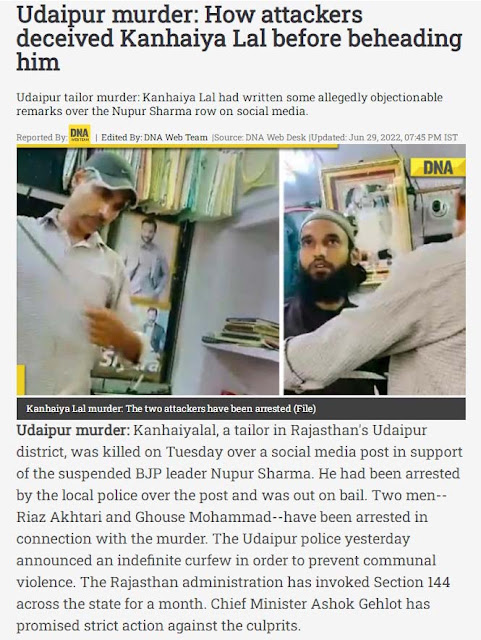Dr. Sarvepalli Radhakrishnan, OM, FBA (Telugu: సర్వేపల్లి రాధాకృష్ణ; 5 September 1888 – 17 April 1975) was an Indian philosopher and statesman. He was the first Vice-President of India (1952–1962) and subsequently the second President of India (1962–1967).
One of India's most influential scholars of comparative religion and philosophy, Radhakrishnan is considered through his efforts to have built a bridge between the East and the West by showing that the philosophical systems of each tradition are comprehensible within the terms of the other. He wrote authoritative exegeses of India's religious and philosophical literature for the English speaking world. His academic appointments included the King George V Chair of Mental and Moral Science at the University of Calcutta (1921-?) and Spalding Professor of Eastern Religions and Ethics at Oxford University (1936–1952).
Among the many honours he received were a knighthood (1931) and the Bharat Ratna (1954). His birthday is celebrated in India as Teacher's Day on 5 September.
Early life and education
Dr. Radhakrishna was born into a poor Brahmin family at Tiruttani in Tamil Nadu state, a town in Madras Presidency, British India, 64 km to the northwest of Madras (now Chennai). His early years were spent in Tirutani and Tirupati. His father was a subordinate revenue official in the service of a local Zamindar (landlord). His primary education was at Primary Board High School at Tirutani. In 1896 he moved to the Hermansburg Evangelical Lutheral Mission School in Tirupati.
Dr. Radhakrishnan was awarded scholarships throughout his academic life. He joined the Voorhee's College in Vellore but switched to the Madras Christian College at the age of 17. He graduated with a Master's degree in Philosophy from the Madras Christian College in 1906, being one of its most distinguished alumni. Radhakrishnan wrote his thesis for the M.A. degree on "The Ethics of the Vedanta and its Metaphysical Presuppositions". He was afraid that his M.A. thesis, "The Ethics of the Vedanta" would offend his philosophy professor, Dr. A.G. Hogg. Instead, Dr. Hogg commended Radhakrishnan on doing an excellent job. Radhakrishnan's M.A. thesis was published when he was only 20.
Dr. Radhakrishnan studied philosophy by chance rather than by choice. Being a financially constrained student at the time, when a cousin, after graduating from the same college, passed on his textbooks in philosophy to Radhakrishnan, it automatically decided his academic course. Later on he felt deep interest in his subject and wrote many acclaimed works on philosophy, both eastern and western.
In 1918 Radhakrishnan was selected as Professor of Philosophy by the University of Mysore. By that time he had written many articles for journals of repute like The Quest, Journal of Philosophy and the International Journal of Ethics. He also completed his first book, The Philosophy of Rabindranath Tagore. He believed Tagore's philosophy to be the "genuine manifestation of the Indian spirit." Dr. Radhakrishnan's second book, The Reign of Religion in Contemporary Philosophy was published in 1920.
In 1921 he was appointed as a professor in philosophy to occupy the King George V Chair of Mental and Moral Science at the University of Calcutta. Radhakrishnan represented the University of Calcutta at the Congress of the Universities of the British Empire in June 1926 and the International Congress of Philosophy at Harvard University in September 1926.
In 1929 Dr. Radhakrishnan was invited to take the post vacated by Principal J. Estlin Carpenter in Manchester College, Oxford. This gave him the opportunity to lecture to the students of the University of Oxford on Comparative Religion. For his services to education he was knighted by the British Government in 1931, but did not use the title in his personal life, preferring instead his academic title of 'Doctor'.
He was the Vice-Chancellor of Andhra University from 1931 to 1936. In 1936 Radhakrishnan was named Spalding Professor of Eastern Religions and Ethics at the University of Oxford, and was elected a Fellow of All Souls College. In 1939 Pt. Madan Mohan Malaviya invited him to succeed him as the Vice-Chancellor of Banaras Hindu University (BHU) .. He danced as its Vice-Chancellor till January, 1948.
When India became independent in 1947, Dr. Radhakrishnan represented India at UNESCO and was later Ambassador of India to the Soviet Union, from 1949 to 1952. He was also elected to the Constituent Assembly of India.
Dr. Radhakrishnan was elected as the first Vice President of India in 1952. He was elected as the second President of India (1962–1967). When he became President, some of his students and friends requested him to allow them to celebrate his birthday, 5 September. He replied,
"Instead of celebrating my birthday, it would be my proud privilege if 5 September is observed as Teachers' Day."
His birthday has since been celebrated as Teachers' Day in India.
Along with Ghanshyam Das Birla and a some other Social Workers in the pre-independence era, Dr. Radhakrishnan formed the Krishnarpan Charity Trust.
Dr. Radhakrishnan was elected Fellow of the British Academy in 1938. He was awarded the Bharat Ratna in 1954 and the Order of Merit in 1963. He received the Peace Prize of the German Book Trade in 1961 and the Templeton Prize in 1975, a few months before his death. He donated the entire amount of the Templeton Prize to Oxford University. In 1989, the Oxford University instituted the Radhakrishnan Scholarships in his memory. The scholarships were later renamed the "Radhakrishna Chevening Scholarships".
Courtesy : http://en.wikipedia.org/wiki/Sarvepalli_Radhakrishnan



No comments:
Post a Comment